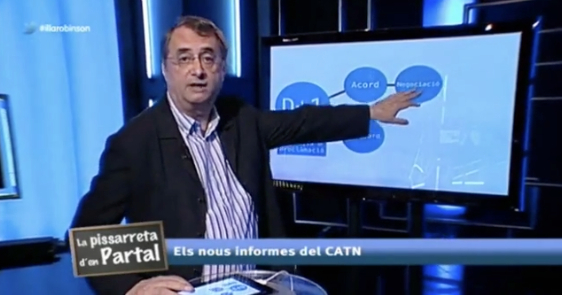15.07.2014 - 13:04
Report Number 10 from the National Transition Advisory Council (Consell Assessor per a la Transició Nacional, CATN) deals with the constituent process and details how a proclamation of independence might come about.
Does the Spanish State have to accept a declaration of independence?
No. The process will be better and easier if it is negotiated with the State, but it is not required.
If the State agrees to negotiations on independence, what objectives will have to be met?
It will be necessary to negotiate the conditions, and establish the conditions for incorporating the new state into the European Union, and making the internal preparations for the creation of a new state.
If the State agrees to negotiations on independence, how long would the negotiations last?
If the two states work together, it’s possible that the negotiations might last eighteen months. If they don’t, the negotiation period would be much shorter.
If the State refuses negotiations on independence, what objectives must be met?
If the Spanish State does not want to negotiate, the alternative that remains for the Generalitat is to make the popular will clear by unilaterally declaring independence. If the November 9th referendum has not been held, a referendum to ratify independence will have to be celebrated. Immediately thereafter, international recognition would be sought and the territory would have to come under control of the country.
What happens after the proclamation of independence?
The proclamation of independence is the first step in the constituent process. The Catalan Parliament would approve a law about the constituent process that would have to define how the Catalan institutions will adapt, what are the provisional systems with respect to rights and liberties, nationality, language use, legal system, the relationship with the state, and international relations.
Is a provisional constitution necessary?
The Catalan Parliament will have to pass a law defining the constituent process. It does not have to be called a provisional constitution.
What is the next step? Elections?
The first step would be constituent elections. They would be called directly after the declaration of independence. The resulting legislature would have to write and approve the constitution of the independent Catalan State.
Would the constitution have to be ratified by a referendum?
It’s essential that the new constitution be ratified with a referendum.
How would the Catalan institutions adapt to the constituent process?
The president of the Catalan government would become the head of state. The judicial powers and regulatory bodies would have to adapt to the new situation.
Who would be considered a citizen of the new state?
In principle, those who have Spanish nationality and who are registered residents of a municipality of Catalonia. Later concrete regulations will be established for additional cases, for example, citizens born in Catalonia but who reside elsewhere.
Would it be necessary to define which languages have an official status?
It would not be necessary. In general, a constituent law or provisional constitution does not have to make decisions that it’s reasonable to assume will be set by a definitive constitution later on.



